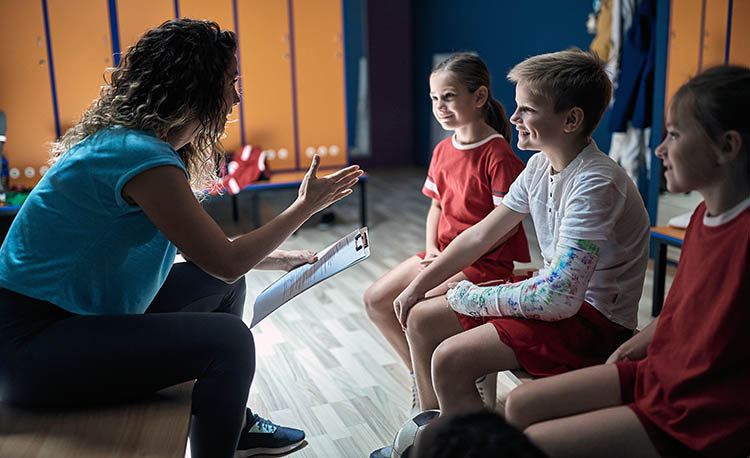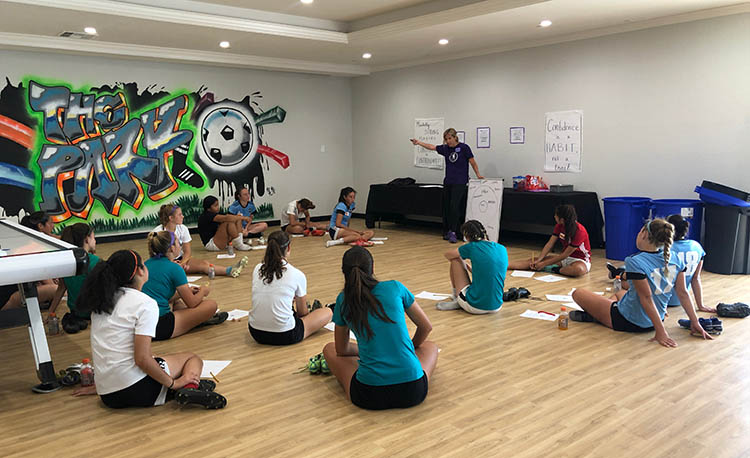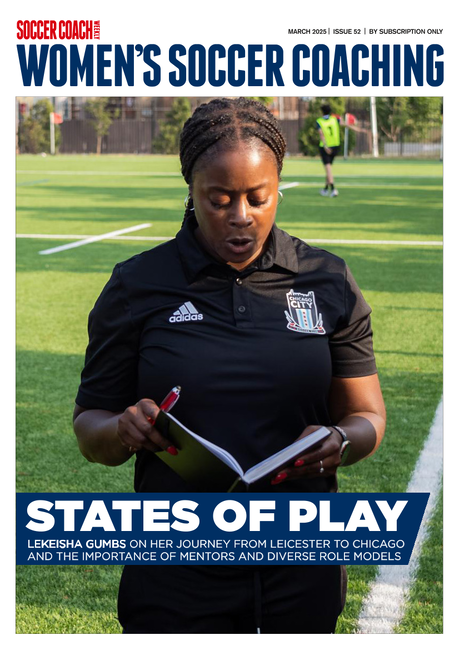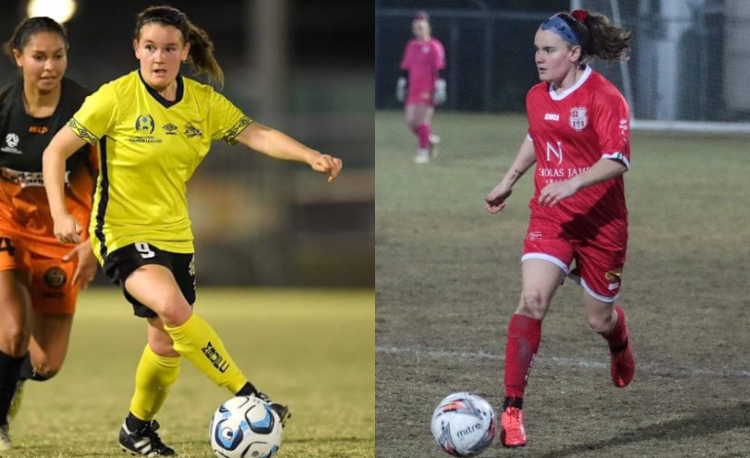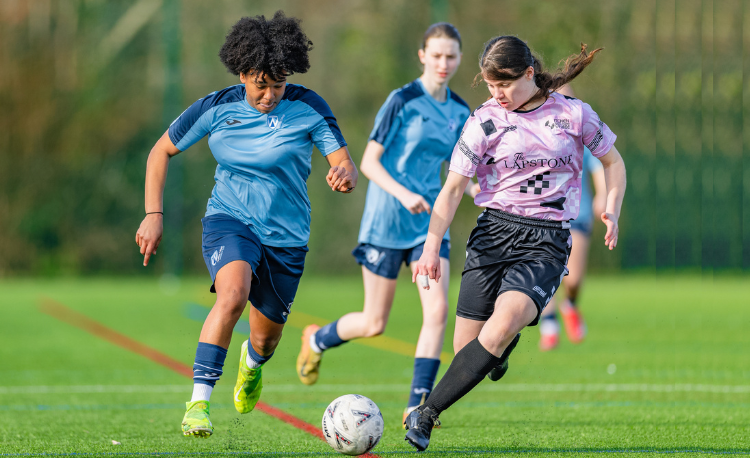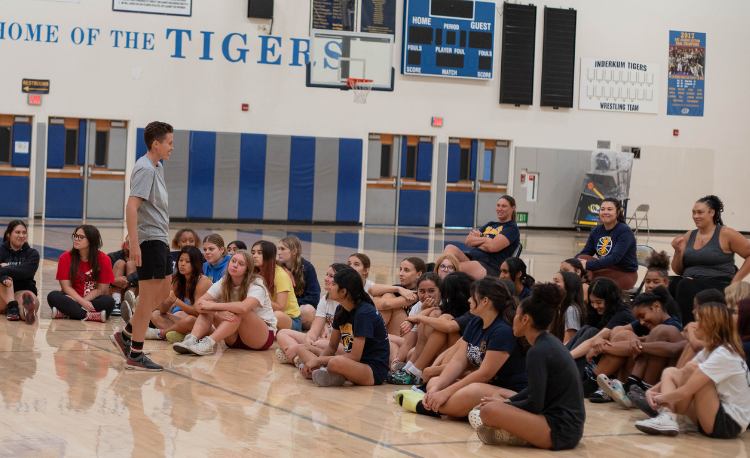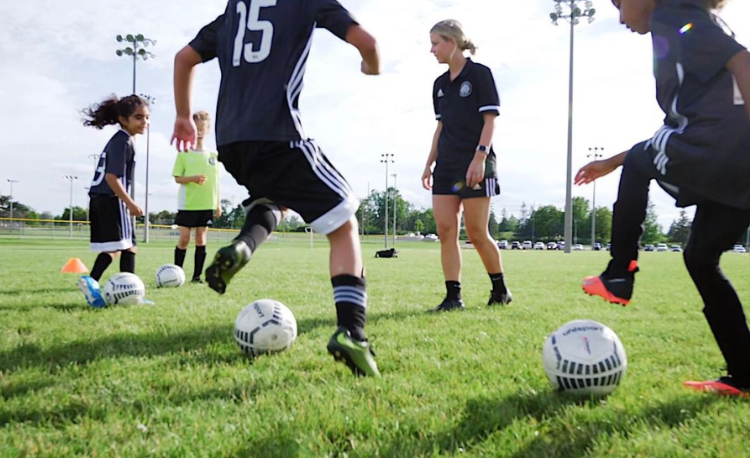You are viewing
1 of your 3 free articles
Mental skills training is in your job description'
Coaching Adviceby Kassie Gray
October 10 was World Mental Health Day. Kassie Gray, of Female Footballers, explains why coaching your players' mentality is more important now than ever
If there is anything this past year has taught us, it is that mental health matters.
The psychological impact on elite athletes has certainly come to the fore in 2021, whether it is those struggling through the pandemic or big names such as Naomi Osaka and Simone Biles taking mental-health breaks from major events.
Mental health is, finally, getting some much-needed time in the spotlight.
At Female Footballers, we hope the discussion around the mental side of sport gets more than 15 minutes of fame. We have been trying to bring attention to it for six years now.
In order to understand the importance of mentality in sport, we first need to understand what it means.
The psychological impact on elite athletes has certainly come to the fore in 2021, whether it is those struggling through the pandemic or big names such as Naomi Osaka and Simone Biles taking mental-health breaks from major events.
Mental health is, finally, getting some much-needed time in the spotlight.
At Female Footballers, we hope the discussion around the mental side of sport gets more than 15 minutes of fame. We have been trying to bring attention to it for six years now.
In order to understand the importance of mentality in sport, we first need to understand what it means.
First of all, let's think of mental health as an umbrella term. Just like ‘physical health’, it encompasses a lot - it is a broad term with countless facets.
To keep things simple, we will break those facets into three main components: mental awareness, mental strength and mental health.
As athletes, we first need to have mental awareness about ourselves. Self-awareness means to know your needs, how your brain functions, your mental habits and tendencies.
Just like we learn how to consistently strike a ball, we can learn to analyse and self- correct as we know more about ourselves.
We want to encourage girls to analyse their feelings, emotions and habits pertaining to sport. This can be done many ways, but it starts with asking players questions.
As coaches, we often ask them why they passed to someone, or what they were thinking when they made a particular run. But we don't often ask 'how do you like to be spoken to?' or 'what is the best way for me to give you feedback?'.
Once you become more mentally self- aware, you are able to work on your mental strength. This is where athletes can think of their brain like a muscle and begin to train it.
Like building any other muscles, this takes consistency in daily practice. It takes activities, drills, fixing bad habits and creating new routines.
On the field, we are all about the drill and kill of technical, tactical and physical skills. But when was the last time you put time into talking about confidence, growth mindset or grit?
“We encourage girls to analyse feelings, emotions and habits pertaining to sport..."Of course, we can be aware of how our body functions and be training it, and still get setbacks with injuries that are out of our control.
So it can happen with our mental side too, with setbacks that affect mood, thinking and behaviour and confidence.
Just like your body requires medical attention when it suffers physical injury, any mental health issues demands expert attention, too.
Unfortunately, we are still fighting against stereotypes about mental health in mainstream society. This has set us back a bit in terms of having the same resources available to mental health as we do physical health, particularly when it comes to sports.
At Female Footballers, we provide mental-skills training for female athletes in a mentorship environment. In other words, we are not doctors or psychologists, rather educators and experienced mentors. But we are necessary.
We help athletes become more self-aware of their psychological wellbeing and begin to help them strengthen their mental side in soccer.
We believe that you, as a coach, not only CAN do what we do - but, in our opinion, it is in your job description now.
Why is it so important? Well, in youth soccer, girls drop out of sports at two times the rate of boys, according to the Women’s Sports Foundation.
Related Files
WSC-011-mental-skills-training-is-your-job-description.pdfPDF, 4.3 MB
In collegiate soccer in the US, 48 per cent of players report having suffered some form of depression or anxiety symptoms - and these stats were taken before the Covid-19 pandemic, which has impacted many people's mental health.
Because girls often have different challenges from boys within our sport, we need to differentiate our coaching at times to meet their needs. If drop-out and mental health issues are plaguing our girls, let's start coaching the whole player and help them more.
We need to stop expecting our players to do things our way as coaches and begin to meet them in the middle.
We don’t need to reinvent the wheel and change all of our philosophies and sessions, but we do need to actually implement mental skills practice into our coaching sessions.
Many clubs say they do - but they really don’t. And many coaches feel they do, even though they also don’t.
At Female Footballers, we have developed a curriculum for mental skills training we are happy to work with clubs on. But if you want to develop your own, we have a few tips.
First, identify around five key mental skills and focus areas, such as confidence, motivation and so forth.
Second, allocate a dedicated amount of time each week to mental skills. How long you spend on it can be determined by your coaches, the director of coaching, or your admin board.
Thirdly, make sure you follow it through and be consistent in your approach.
"Many clubs say they put mental skills practices in sessions - but they don't..."The types of activities you do in your allotted time should relate directly to the key mental skills you initially identified.
We suggest creating, in agreement with your players, some rules or team norms when discussing sensitive topics. The goal is to form an inclusive and safe-feeling culture.
After you have some form of an agreement with players, we recommend a team-building activity as an assessment tool to see where they are at with their mental awareness.
This will vary depending on age. Players under the age of 12 will, typically, have much less self-awareness than those 13 and older. Some will have no habits when it comes to their mentality, while others will have created some bad habits that need extra attention.
Once you feel you have a good idea of where players are at, you can make things more individual or even group players based on your assessments.
The hardest part of incorporating mental skills into your coaching regime is measuring mental performance.
Just as the technical, tactical or physical elements of the game can be hard to measure in youth soccer due to a lack of consistency, it is the same with players' mentality.
But remember, just like physical performance, the more you train, the better shape you are in. We promise that the more time you put into training your players' mentality, the stronger it will be.
At Female Footballers, we offer customised team training sessions and online individual player courses, and if you are interested in having us come and do a clinic or camp, we can make that happen.
For more information, visit www.femalefootballers.org or follow us on Instagram @femfootballers.
Newsletter Sign Up
Newsletter Sign Up
Discover the simple way to become a more effective, more successful soccer coach
In a recent survey 89% of subscribers said Women's Soccer Coaching makes them more confident, 91% said Women's Soccer Coaching makes them a more effective coach and 93% said Women's Soccer Coaching makes them more inspired.
*includes 3 coaching manuals
Get Inspired
All the latest techniques and approaches
Women's Soccer Coaching offers proven and easy to use soccer drills, coaching sessions, practice plans, small-sided games, warm-ups, training tips and advice.
We've been at the cutting edge of soccer coaching since we launched Soccer Coach Weekly in 2007, creating resources for the grassroots youth coach, following best practice from around the world and insights from the professional game.
